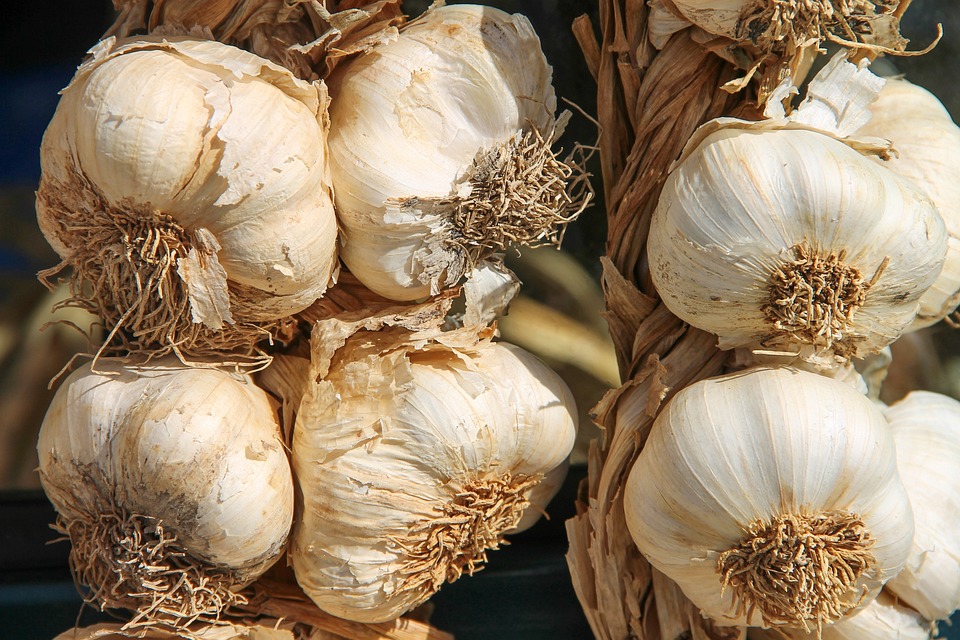Some foods that are deemed healthy for humans might be quite harmful to pets. The following is a list of some of the most frequent foods that are harmful to animals.
1. Xylitol
We, humans, love sugar, sometimes too much. There are some foods that contain xylitol, a sugar replacement that is made from a naturally occurring chemical. It’s a sugar alcohol that may be found in berries, plums, corn, oats, mushrooms, lettuce, trees, and a few other foods.
Here is a list of foods that contains xylitol; Sugar-free gum, sweets, breath mints, baked goods, peanut butter, pudding snacks, cough syrup, chewable or gummy vitamins, supplements or over-the-counter medicines, mouthwash, and toothpaste.
In dogs, even modest doses of xylitol can result in hypoglycemia (low blood sugar), seizures, liver failure, and even death. So you will want to make sure your little friend stay away from food that contains xylitol.
2. Garlic and Onion/Chives (Even Powder)

Onions, garlic, leeks, and chives, while improving the taste of your meal, can create significant medical problems in your dog. Although clinical indicators of sickness, like vomiting, may develop shortly after your dog consumes any of these foods, the complete onset of symptoms may take several days.
In most breeds of dogs, eating any allium species can trigger gastroenteritis or gastrointestinal tract irritation. Other side effects can include mouth irritations, drooling, nausea, stomach discomfort, vomiting and diarrhea.
Another thing to remember is that Allium can also trigger canine anemia, which in turn causes an increase in heart rate, increased breathing rate and effort, weakness, coloured urine, renal damage, collapse, and even death.
3. Avocado
Avocado fruit, pits, leaves and the physical plant itself all contain persin, making them potentially toxic to your dog.
The exact quantity of deadly persin is unknown, but the compound can induce vomiting, diarrhea, and cardiac damage in excessive doses. If dogs consume too much avocado flesh, it can trigger gastrointestinal distress and pancreatitis, and because it’s heavy in calories, it can cause weight gain. Another issue is the pit in the fruit’s core, which your dog can choke on.
4. Chocolate
Although chocolate is a delectable treat for humans, it is not appropriate for dogs. Chocolate poisoning is a frequent condition in dogs, and it’s usually caused by unintentional intake. While chocolate is poisonous to dogs, the degree of toxicity varies depending on the type of chocolate consumed, the amount consumed, and the dog’s size.
Chocolate includes theobromine and, to a lesser amount, caffeine, which is harmful to dogs. Theobromine and caffeine are metabolized slowly by dogs, allowing poisonous chemicals to build up in their systems and induce clinical symptoms of chocolate poisoning.
5. Cooked Bones

Cooked bones, especially left-over bone scraps from your plate, are harmful to our dogs for various reasons. Either they are baked, boiled, steamed, fried, or smoked, they are all dangerous. The collegean and nutrients are extracted from the bone when cooked, leaving a brittle bone that was once soft and pliable.
If an enthusiastic dog chews on a cooked bone, it is simple for them to shatter the bone into sharp bits. If ingested, these sharp splinters can cause significant internal injury in addition to being a choking hazard.
Chewing on bones can result in damaged teeth and blockages in the oesophagus, trachea, or intestines due to bone fragments being lodged. Internal bleeding is also a possibility if pieces puncture internal organs.
9. Salt
Humans enjoy salty foods such as potato chips and pretzels, and sometimes we even season them with more salt to enhance their flavour. Is it, however, safe for dogs to eat these salty snacks? Although humans use salt in (or on) practically everything, it isn’t suitable for dogs. Furthermore, excessive salt consumption can cause salt poisoning, resulting in dehydration, vomiting, nausea, and diarrhea.
The first sign that your dog has eaten too much salt is that he is drinking a lot of water. If your dog has consumed an excessive quantity of salt, you may notice that their muscles have grown quite stiff due to the loss of moisture in their muscles. They may appear exhausted and have a bloated stomach.
You may want to do a lot of research before feeding your dog. I hope that this post was able to clear any uncertainty. Leave in the comment below which one of these food mentions above you once gave to your pet.

1 thought on “Food That Is Dangerous for Your Pets.”